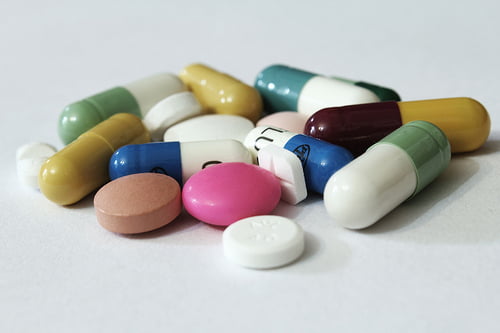Many of us know the drill: blood tests reveal that our diet isn’t sufficient in providing us all the vitamins and minerals we need, causing us to take additional food supplements. Israeli researchers now found a way to better protect these sensitive nutrients from degradation in liquids or inside our bodies.
The researchers from the Biotechnology & Food Engineering Department at the Israeli Institute of Technology, the Technion, in Haifa, created nanocapsules that are based on natural food components, and trapped in them are those vitamins and health-enhancing nutrients that otherwise do not dissolve well in liquids. These tiny nanocapsules can be added to drinks, while also protecting the nutrients inside them.
Related Stories:
Artifcial Blood Vessels Created To Cure Diseases
New ‘Seek And Destroy’ Method To Fight Cancer
Researcher Dr. Yoav Livney tells NoCamels: “We used several food ingredients, such as maltodextrin – which is a break-down product of starch – and Casein. By heating them we connected them together. We studied their structure and self-assembly properties, and later found ways to entrap hydrophobic nutrients within these nanocapsules.”
The bioactive compounds studied were vitamin D – which is essential for bones, muscles and the immune system – and EGCG: An important compound found in green tea, which is effective in the prevention of neurodegenerative diseases like Parkinson’s, cardiovascular diseases and cancer.
“We studied the transparency of the solutions obtained, and the protection conferred to the entrapped compounds by the nanocapsules during production, product shelf-life and digestion,” adds Livney.
The research team found that the nanocapsules protect the vitamins “packed” in them. As Dr. Livney indicates: “The nanocapsules protect the bioactive compounds during the harsh conditions of gastric digestion, which suggest this may be useful for oral delivery of sensitive drugs to the intestine.”
These results have significant implications on future drug development, as the nanocapsules can potentially be used by the pharmaceutical industry to protect medicines in the stomach and control their release in the intestines. According to Dr. Livney, “we also intend to investigate the encapsulation by this method of other bio-active components, such as anti-cancer medicines.”
Dr.Livney and his team are currently working on such applications in continuation projects. “A couple more publications will come out soon and a new research project has recently commenced, taking this approach to targeted nanodelivery of anti-cancer drugs,” he says.
Photo by e-MagineArt.com
Related posts

Israeli Medical Technologies That Could Change The World

Harnessing Our Own Bodies For Side Effect-Free Weight Loss

Missing Protein Could Unlock Treatment For Aggressive Lung Cancer




Facebook comments